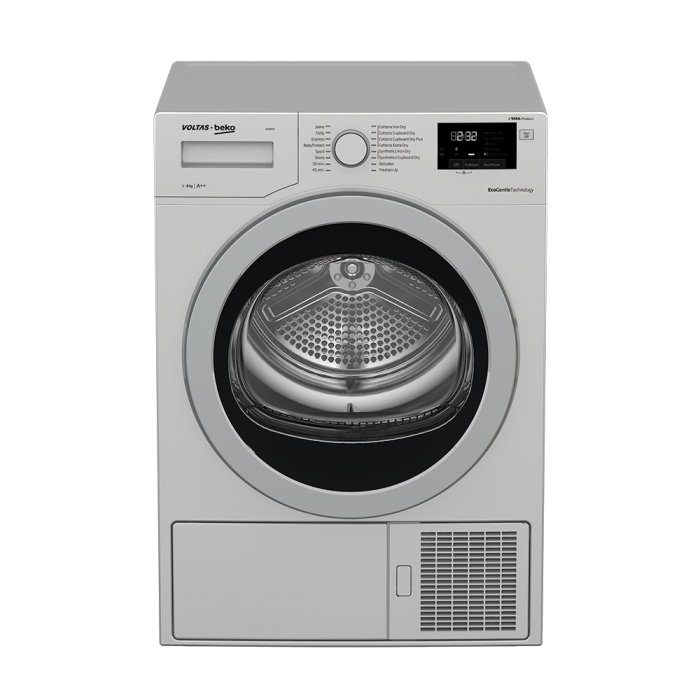A clothes dryer is an essential appliance in many households, making laundry routines more efficient and convenient. With a wide variety of models available in the market, choosing the right dryer can be daunting. The right clothes dryer can save you time, energy, and ultimately enhance your laundry experience. This article will provide an in-depth guide on how to find the best clothes dryer that meets your laundry needs, exploring important features, sizes, types, and helpful tips for making a wise choice.
Types of Clothes Dryers
Choosing the right type of clothes dryer depends on your needs and preferences. Different models come with unique benefits and considerations. Let’s explore the main types available to help you make an informed decision.
Gas vs Electric Dryers
Gas and electric dryers are the two primary options for households. Each has its pros and cons:
- Gas Dryers: These run on natural gas or propane, which often dries clothes faster. They cost more upfront but are typically cheaper to operate in the long run due to lower energy consumption.
- Electric Dryers: These are easier to install since they only require an electrical outlet. They have a slightly higher energy cost but come at a lower initial price.
When deciding, consider the availability of gas lines in your home and your energy preferences.
Ventless vs Vented Dryers
Another critical decision is between ventless and vented dryers. These options suit different setups and needs:
- Vented Dryers: These dryers expel hot air outside through a vent. They’re ideal for homes with proper ductwork and ventilation. These tend to dry clothes faster but require more specific installation.
- Ventless Dryers: These units recycle hot air internally, making them a great fit for small spaces or apartments. While slower, they are energy efficient and easier to install.
Evaluate your space and layout before making a choice. Ventless models are often better for those with limited installation options.
Understanding these types will help you pick the perfect clothes dryer for your home. Make your decision based on energy use, installation requirements, and your living situation.
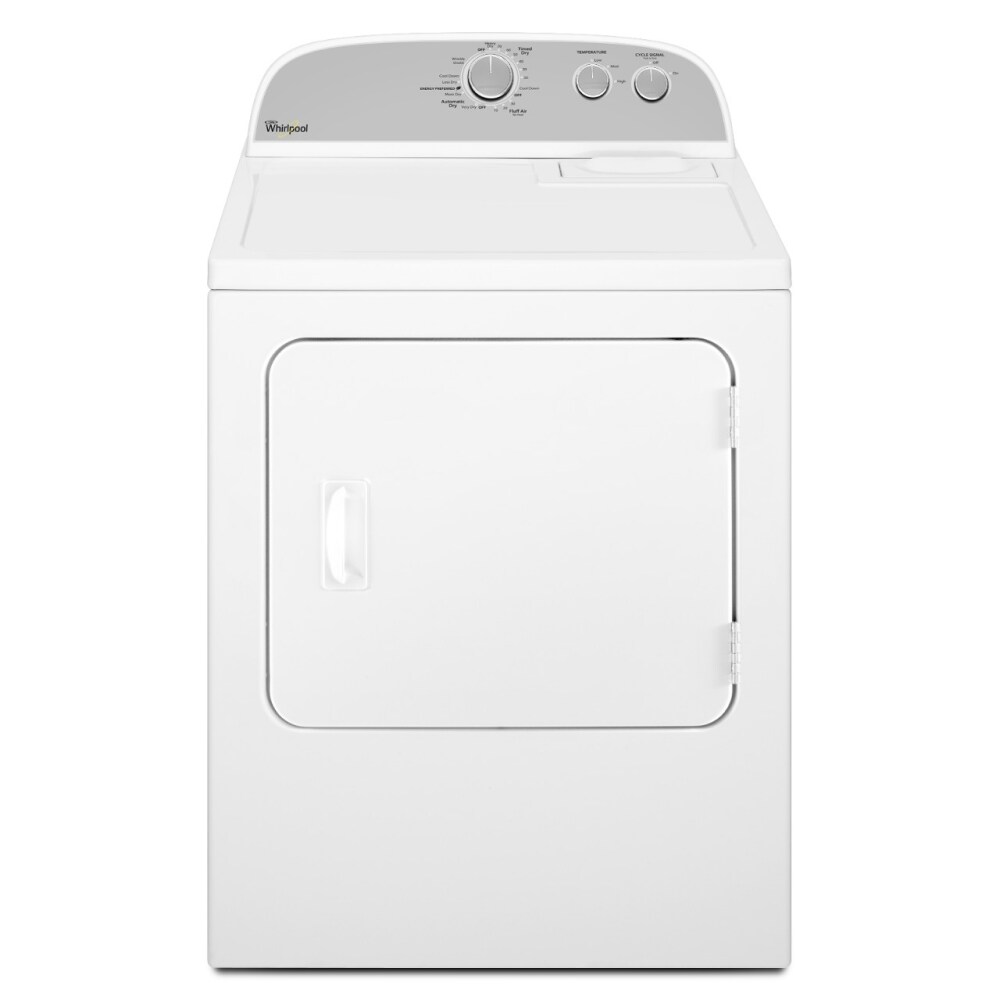
Key Features to Look For
When buying a clothes dryer, key features matter. These elements determine performance, cost, and usability.
Energy Efficiency Ratings
Energy efficiency is crucial for long-term savings. Look for the Energy Star label on dryers. Energy-efficient models use less electricity or gas while performing effectively. They reduce energy bills and are better for the environment. Compare dryers’ energy consumption ratings before purchasing.
Drying Capacity and Size
The dryer’s size impacts its usefulness. Choose a dryer with suitable capacity based on your household size. Larger families need bigger dryers to handle more clothes. Smaller households can save space and energy with compact models. Measure your laundry area’s dimensions to ensure the dryer fits well.
Advanced Settings and Controls
Modern dryers often come with advanced controls. These features make drying clothes more convenient and efficient. Look for settings such as moisture sensing, which prevents over-drying. Preset programs for fabrics like delicates or heavy towels are also helpful. Smart technology, like app controls, can enhance the user experience. Prioritize features that match your daily needs for better results.
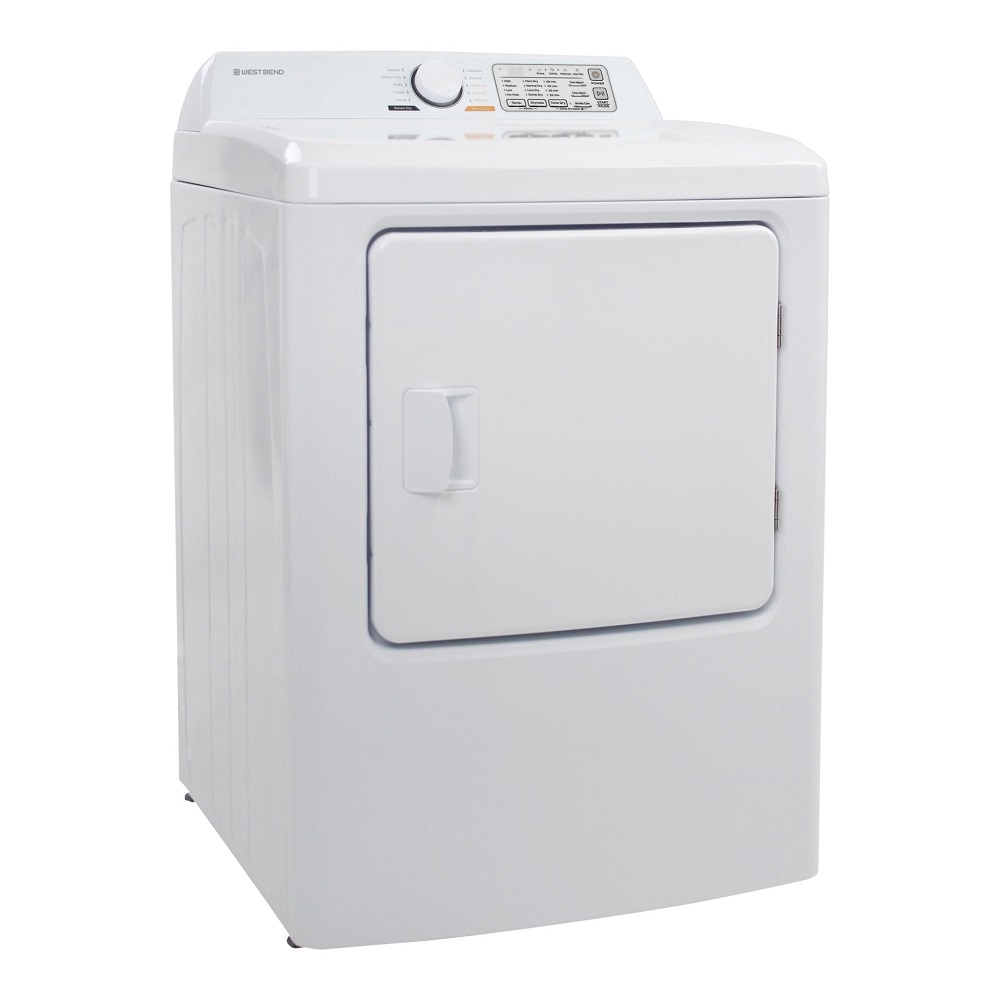
Comparing Brands and Models
Choosing the best clothes dryer involves comparing brands and models. Each brand offers unique features, performance, and price points. Understanding these differences can help you make a purchase that suits your needs.
Top Recommended Brands
Some brands consistently stand out for their reliability and innovation:
- Samsung: Known for modern designs and advanced smart features. Their dryers feature intuitive controls and excellent energy efficiency.
- LG: Offers durable dryers with a wide range of features, including moisture sensors and large capacities.
- Whirlpool: Popular for budget-friendly models that balance performance and affordability. They are reliable and easy to maintain.
- Bosch: Produces highly energy-efficient ventless dryers ideal for compact spaces and environmentally-conscious households.
Consider the reputation, warranty, and customer reviews of these brands before making a decision.
Differences Between Premium and Budget Models
Premium and budget clothes dryers differ in design, functionality, and performance. Understanding these differences helps find the right balance between cost and features:
- Premium Models: These come with advanced technology such as smart controls, moisture sensing, and steam options. They often provide higher energy efficiency and faster drying performance. However, they cost more upfront.
- Budget Models: Simpler models focus on basic drying functions. While less expensive, they may lack advanced controls and energy-saving technologies. They are ideal for users who need functional drying without extra features.
Evaluate your priorities and budget. If you prefer convenience and efficiency, opt for premium models. For basic usage, budget-friendly dryers can fulfill the need without overspending.
Installation Considerations
Proper installation of a clothes dryer is essential for optimal performance and safety. Before purchasing a dryer, evaluate your space and ventilation needs to ensure compatibility.
Space Requirements
The space available for installation plays a significant role in picking a dryer. Measure the area where the dryer will be placed, including width, height, and depth. Don’t forget to leave space for the door to open fully and for loading clothes. Compact dryers are ideal for small spaces or apartments, while standard models suit larger laundry areas. Consider clearance for proper ventilation and maintenance access as well.
Stackable dryers can save space when paired with compatible washers, making them a popular choice for tight setups. Always confirm the dimensions of the dryer before purchase to avoid fitting issues.
Ventilation Needs
Ventilation is a crucial factor in dryer installation, especially for vented models. These dryers require a duct system to expel hot air outside. Ensure the duct path is short and straight to maximize efficiency. Use materials like rigid metal for the duct, as flexible plastic can pose fire risks.
For homes without external ducting options, ventless dryers are a great alternative. They recycle air internally and don’t need external ventilation. However, they may increase room humidity slightly. Regardless of the type, keep the installation area well-ventilated to prevent heat buildup.
Seek professional installation assistance if unsure about ventilation or space requirements. Proper setup ensures safety and better dryer performance in the long term.
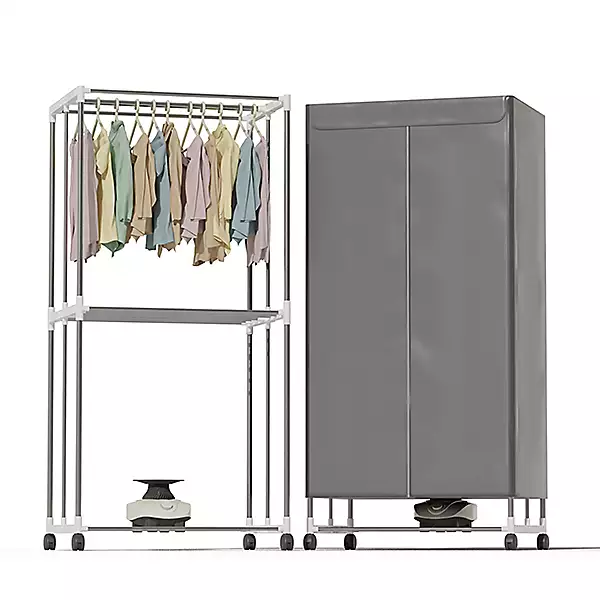
Maintenance Tips for Longevity
Proper maintenance can extend the life of your clothes dryer. Regular care ensures safer operation and preserves efficiency. Below are some essential tips to keep your dryer in excellent condition.
Cleaning the Lint Filter
The lint filter plays a critical role in your dryer’s performance and safety. Clean it after every drying cycle to avoid lint buildup, which can reduce efficiency and pose a fire hazard. Follow these steps:
- Remove the lint filter from its slot.
- Use your hand or a soft brush to clear away lint.
- Rinse with water periodically to remove fine dust particles.
- Allow it to dry completely before reinserting.
A clean filter improves airflow and helps your dryer work more effectively while reducing drying times.
Regular Inspection and Repairs
Routine inspections ensure your dryer operates safely and efficiently. Check these elements regularly:
- Dryer Drum: Inspect for cracks or damage that might affect performance.
- Vents and Ducts: Clear vent pipes of lint or debris every six months to maintain good airflow.
- Electrical Connections: Ensure cords and plugs are in good shape. Loose connections can lead to hazards.
- Seals and Gaskets: Look for wear or damage and replace them to maintain heat efficiency.
If you notice unusual noises, longer drying times, or overheating, seek professional help. Addressing small problems quickly can prevent costly repairs.
By following these maintenance tips, you’ll prolong your dryer’s lifespan and enhance its energy efficiency. A well-maintained dryer is safer, more reliable, and cost-effective.
Frequently Asked Questions
How Long Should a Dryer Last?
The lifespan of a clothes dryer typically ranges from 10 to 15 years. Regular maintenance can stretch its usability closer to the 15-year mark. Factors such as usage frequency, climate, and build quality also matter. Higher-end models often last longer due to better components. Follow proper care routines, like cleaning the lint filter and ducts frequently. Prompt repairs for minor issues can prevent major breakdowns and prolong the lifespan. Choose a reliable brand with good reviews to ensure durability.
Can All Clothes Be Dried in a Machine?
Not all clothes should be machine-dried, as some fabrics can get damaged. Items like wool, silk, and spandex may shrink or lose their texture. Always check laundry care labels for drying instructions. Dryers with advanced settings can help protect delicate fabrics. For example, low-heat or air-drying options are ideal for sensitive materials. Avoid drying clothes with metal parts, like jackets with zippers, as they can damage the machine. Dry heavy fabrics like towels separately to ensure optimal performance and safety.
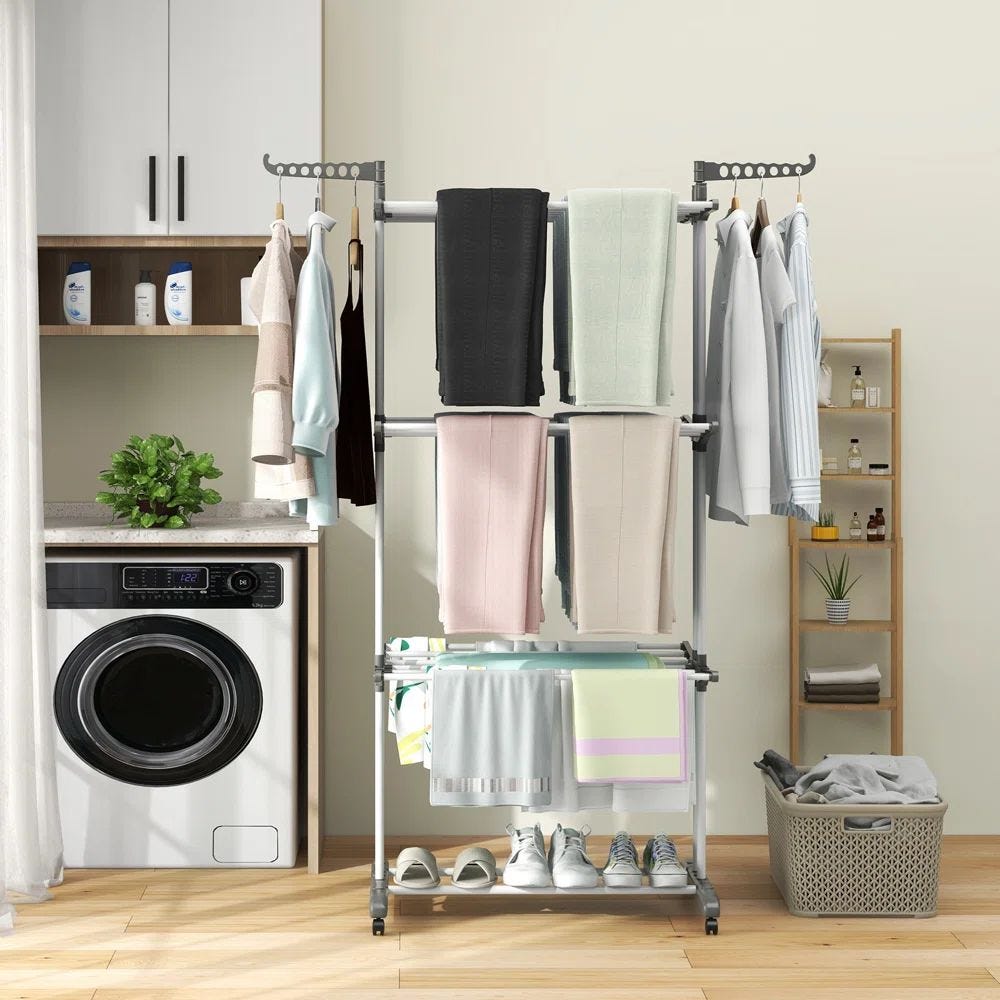
Trends in Clothes Dryer Technology
Smart Dryers
In recent years, technology has transformed the way we approach laundry. Smart dryers are now available, equipped with Wi-Fi connectivity and mobile apps that allow users to monitor and control their dryers remotely. This means you can start or stop a cycle, receive alerts when laundry is finished, or even run diagnostic checks to troubleshoot issues directly from your smartphone. Smart dryers enhance user convenience and help streamline household chores, making it easier to integrate laundry routines into busy lifestyles.
Innovative Drying Technology
Many modern dryers also feature innovative drying technologies that improve efficiency and drying performance. For instance, some models utilize heat pump technology, which recycles hot air during the drying process. This not only reduces energy consumption but also offers gentler drying conditions for delicate fabrics. Another innovative technology is moisture sensing, which detects the moisture levels in the clothes and automatically adjusts the drying time accordingly. This ensures that clothes are thoroughly dried without the risk of over-drying, which can damage fabrics.
Eco-Friendly Options
As environmental awareness continues to grow, many manufacturers are developing eco-friendly dryers. These models focus on using sustainable materials in construction and implement energy-saving features. Some even use alternative energy sources, such as solar power, to reduce carbon footprints further. When shopping for a new dryer, consider looking for certifications indicating eco-friendliness, such as Energy Star ratings. Making environmentally conscious choices contributes to a more sustainable future and encourages the industry to prioritize environmentally responsible practices.
Tips for Maximizing Dryer Efficiency
Load Management
To achieve optimal performance from your dryer, consider the size of each load. Overloading the dryer can hinder airflow and reduce drying effectiveness. Conversely, drying large loads might take more time and energy than necessary. Aim to balance load sizes so that your dryer can efficiently handle the laundry without compromising performance. For best results, follow the manufacturer’s recommendations on load capacities.
Cycle Selection
Choosing the right drying cycle is essential for maximizing efficiency. Most dryers offer various drying settings, from delicate to heavy-duty cycles. Understanding which cycle to use for different fabrics can have a significant impact on the drying process. For example, using a higher heat setting on delicate fabrics can cause shrinkage or damage. Familiarize yourself with the various settings available on your dryer and match them to the types of clothing you are drying to achieve the best results while saving energy.
Regular User Education
Finally, educating household members on how to use the dryer properly can ensure that everyone is on the same page when it comes to laundry routines. Teach family members about the importance of cleaning the lint filter after each use and the other maintenance tasks required. Understanding the various settings on the dryer and the best practices for drying different fabrics can lead to more efficient laundry sessions and prolong the life of the appliance.
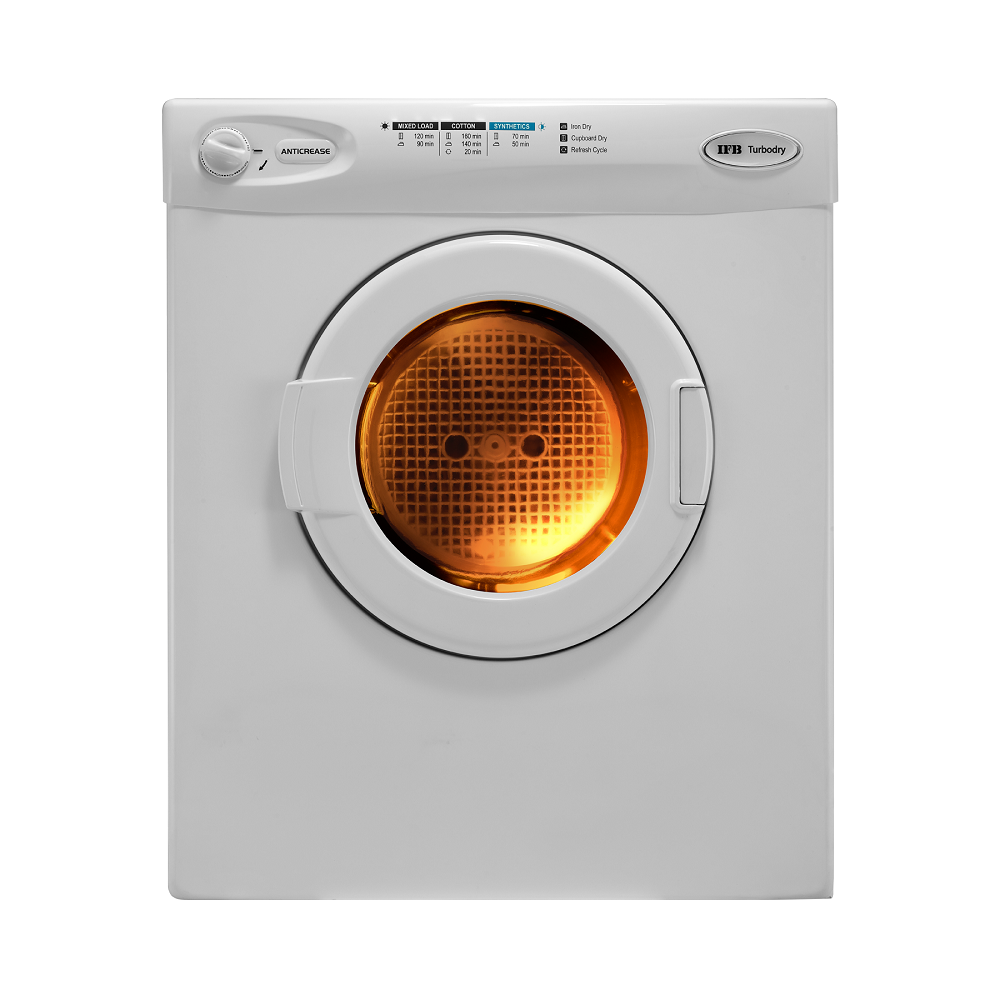
The Future of Clothes Dryers
Evolving Technologies
Looking ahead, the future of clothes dryers promises further innovations and advancements. As technology continues to evolve, we can expect to see smarter and more efficient designs that cater to the needs of modern households. Manufacturers are exploring ways to incorporate artificial intelligence and machine learning into dryers, allowing them to learn and adapt drying processes based on user behavior and preferences.
Sustainable Design
With a growing focus on sustainability, future clothes dryers are likely to be even more eco-friendly. This may include improvements in energy efficiency and the development of materials that reduce environmental impact. Additionally, the integration of renewable technologies and sustainable manufacturing practices may become standard in the industry. Consumers will increasingly seek products that align with their values, and manufacturers will respond by prioritizing environmentally conscious solutions.
Consumer Trends
Trends in consumer preferences will also shape the direction of clothes dryer functionalities. As urban living continues to rise, compact and multifunctional designs will become increasingly popular. Features that allow for adaptability in smaller living spaces will be highly sought after. Moreover, the incorporation of smart technologies that simplify and enhance the user experience will further dictate market trends.
Conclusion
Finding the right clothes dryer may seem overwhelming, but understanding your laundry needs can simplify the process. Consider factors such as capacity, types of dryers, and essential features when making your selection. Modern dryers offer a variety of models that feature smart technologies, energy efficiency, and innovative designs ensuring that they meet the diverse needs of today’s households. Additionally, implementing ways to maximize dryer efficiency and promoting sustainability can lead to a rewarding laundry experience. By investing in a clothes dryer that suits your specific requirements and preferences, you can save time, enhance convenience, and enjoy the benefits of a more efficient laundry routine. With careful consideration and informed choices, you can choose the ideal clothes dryer that will serve you well for years to come, maintaining your clothes in their best condition while making your life easier.

